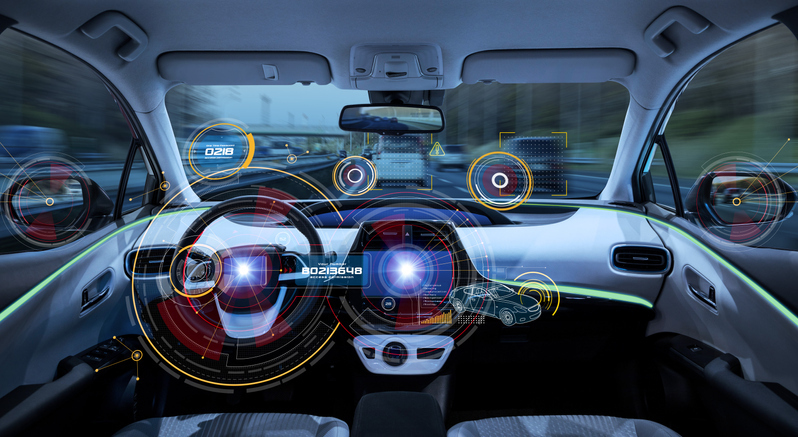
Introduction
According to the study by Next Move Strategy Consulting, the global Automotive Artificial Intelligence Software Market size is predicted to reach USD 55.40 billion with a CAGR of 22.5% by 2030.
In recent years, the integration of artificial intelligence (AI) into software solutions has been reshaping industries across the globe. From healthcare to finance, AI-driven software solutions have revolutionized processes, enhanced efficiency, and unlocked new possibilities. One sector that stands out in its adoption of AI software is the automotive industry. With advancements in autonomous vehicles, predictive maintenance, and personalized driving experiences, the automotive AI software market is poised for significant growth.
The Evolution of AI Software Solutions
The landscape of AI software solutions in the market has undergone remarkable evolution. Initially, AI was primarily associated with futuristic concepts and limited to research laboratories. However, with advancements in computing power, data availability, and algorithmic innovation, AI has become more accessible and practical for businesses of all sizes.
Request for a sample, here: https://www.nextmsc.com/automotive-artificial-intelligence-software-market/request-sample
In the automotive industry, AI software solutions have transformed traditional vehicles into smart, connected machines capable of learning from their environment and making real-time decisions. From self-driving cars that navigate roads autonomously to predictive maintenance systems that anticipate mechanical issues before they occur, AI has become indispensable in driving innovation and efficiency.
Key Trends Driving Growth
Several key trends are driving the growth of AI software solutions in the automotive market:
Autonomous Driving: The race towards fully autonomous vehicles has accelerated the development of AI-powered driving systems. Companies are investing heavily in advanced sensor technologies, machine learning algorithms, and real-time data processing to achieve higher levels of autonomy and safety on the roads.
Predictive Maintenance: AI-driven predictive maintenance solutions are enabling automotive manufacturers to monitor vehicle health in real-time, anticipate maintenance needs, and optimize service schedules. By leveraging data from sensors and onboard diagnostics, AI software can identify potential issues before they lead to costly breakdowns, reducing downtime and enhancing customer satisfaction.
Personalized Experiences: AI-powered infotainment systems and driver assistance features are personalizing the driving experience for consumers. From voice-activated assistants that provide navigation and entertainment options to adaptive cruise control systems that adjust to individual driving preferences, AI software is enhancing comfort, convenience, and safety on the road.
Data Analytics: The abundance of data generated by connected vehicles presents immense opportunities for AI-driven analytics. By analyzing telemetry data, driving patterns, and environmental conditions, automotive companies can gain valuable insights into customer behavior, vehicle performance, and market trends. These insights enable informed decision-making, targeted marketing strategies, and product innovation.
Challenges and Opportunities
Despite the rapid growth of AI software solutions in the automotive market, several challenges remain, including regulatory hurdles, cybersecurity concerns, and ethical considerations surrounding autonomous driving. However, with strategic partnerships, investments in research and development, and ongoing collaboration between industry stakeholders, these challenges can be addressed, unlocking new opportunities for innovation and growth.
Regulatory Hurdles:
As autonomous driving technology continues to evolve, regulatory frameworks must keep pace to ensure safety and compliance with legal standards. Governments around the world are grappling with the complexities of regulating AI-powered vehicles, including liability issues, data privacy concerns, and ethical dilemmas. Establishing clear guidelines and standards for testing, certification, and deployment of autonomous vehicles is essential to foster public trust and acceptance.
Cybersecurity Concerns:
With the increasing connectivity of vehicles and the proliferation of onboard sensors and communication systems, cybersecurity has emerged as a significant concern for automotive manufacturers. Hackers can exploit vulnerabilities in AI software to gain unauthorized access to vehicle systems, compromise safety features, or steal sensitive data. To mitigate cybersecurity risks, automotive companies must prioritize cybersecurity measures, including encryption, authentication, and intrusion detection systems, to safeguard against cyber threats and ensure the integrity and security of AI-driven systems.
Ethical Considerations:
The deployment of AI-powered autonomous vehicles raises ethical questions regarding accountability, decision-making algorithms, and the potential impact on society. In situations where accidents are unavoidable, how should AI systems prioritize different outcomes, such as minimizing harm to passengers versus pedestrians? Who bears responsibility in the event of accidents or malfunctions: the vehicle manufacturer, the software developer, or the human operator? Addressing these ethical dilemmas requires careful consideration of moral principles, legal frameworks, and stakeholder perspectives to ensure that AI-driven technologies are deployed in a responsible and ethical manner.
Despite these challenges, the automotive AI software market presents vast opportunities for innovation and growth. By harnessing the power of AI to improve safety, efficiency, and convenience, automotive companies can gain a competitive edge in an increasingly digital and connected world. From autonomous driving to predictive maintenance to personalized experiences, AI-driven software solutions are reshaping the future of mobility and driving transformative change across the automotive industry.
Fairness and Bias: AI algorithms are trained on vast amounts of data, which can inadvertently perpetuate biases present in the data. In the context of autonomous vehicles, this raises concerns about fairness in decision-making, particularly in scenarios involving pedestrians of different demographics or socioeconomic backgrounds. Addressing bias in AI systems requires transparency in algorithmic decision-making and proactive measures to mitigate discriminatory outcomes.
Privacy and Data Protection: Connected vehicles generate vast amounts of data, including location information, driving behavior, and personal preferences. Ensuring the privacy and security of this data is paramount to maintaining consumer trust and compliance with data protection regulations. Automotive companies must implement robust data protection measures, such as anonymization, encryption, and consent mechanisms, to safeguard sensitive information and uphold individuals' privacy rights.
Job Displacement and Economic Impact: The widespread adoption of AI-driven automation in the automotive industry has the potential to disrupt traditional employment models and reshape the labor market. While AI technologies can create new job opportunities and increase productivity, they may also lead to job displacement for workers in roles susceptible to automation. Addressing the socio-economic impact of AI requires proactive measures, such as reskilling programs, job transition support, and policies to promote inclusive growth and workforce participation.
Environmental Sustainability: AI-driven technologies have the potential to improve environmental sustainability by optimizing energy efficiency, reducing emissions, and enhancing resource management. In the automotive sector, AI software solutions can optimize vehicle performance, route planning, and energy consumption, leading to reduced carbon footprint and environmental impact. By prioritizing sustainability in AI-driven innovation, automotive companies can contribute to global efforts to combat climate change and promote sustainable development.
Inquire before buying, here: https://www.nextmsc.com/automotive-artificial-intelligence-software-market/inquire-before-buying
5. Accessibility and Inclusivity: Ensuring that AI-driven technologies are accessible and inclusive for all individuals, including those with disabilities or special needs, is essential to promote equitable access to mobility solutions. Automotive companies must design AI software solutions with accessibility features, such as voice recognition, tactile interfaces, and customizable settings, to accommodate diverse user needs and preferences. By prioritizing inclusivity in AI design and development, automotive companies can enhance the usability and usability of their products for all consumers.
6. International Collaboration and Governance: As AI technologies transcend national borders, international collaboration and governance frameworks are essential to address cross-border challenges and ensure responsible AI deployment. Collaboration between governments, industry stakeholders, and civil society organizations can facilitate knowledge sharing, harmonize regulatory standards, and promote ethical guidelines for AI development and deployment. By fostering a collaborative and cooperative approach to AI governance, the automotive industry can navigate the complex regulatory landscape and build trust among stakeholders worldwide.
Conclusion
The evolving landscape of artificial intelligence software solutions in the automotive market represents a paradigm shift in how vehicles are designed, manufactured, and operated. With advancements in AI technology, the possibilities for creating safer, smarter, and more sustainable transportation solutions are limitless. As the industry continues to embrace AI-driven innovation, the future of mobility looks increasingly intelligent and interconnected. By addressing regulatory hurdles, cybersecurity concerns, and ethical considerations, automotive companies can navigate the complexities of the AI software market and unlock new opportunities for growth and prosperity in the years to come.






Top comments (0)